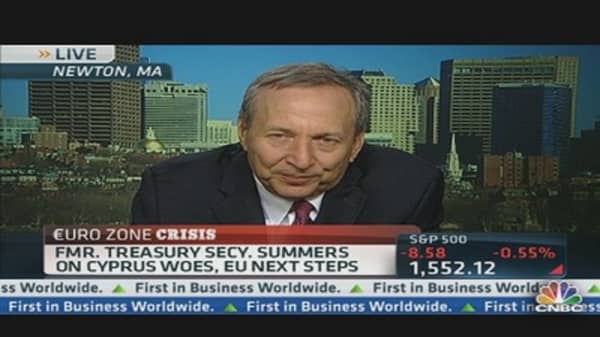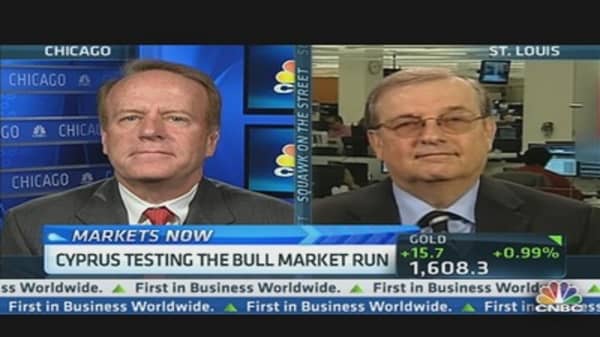A Wall Street Bear Gives Up
As the housing market recovers and U.S. economic growth continues to surprise, a noted Wall Street bear has changed his outlook. Morgan Stanley's Adam Parker took his 2013 year-end price target for the S&P 500 to 1600 from 1434, as he sees "improving fundamentals in the second half of the year and into next year," he wrote in a research report on Monday.
Parker sees only two reasons for a major market correction in the coming months: fear that earnings will be substantially reset or investors starting to worry that positive economic data will mean the end of quantitative easing.
The research departments at other investment banks are also boosting year-end targets after a 9-percent run in the S&P 500 so far this year. Goldman Sachs raised its year-end S&P 500 target 50 points to 1625 on Monday, implying a 4-percent increase in the S&P.
Goldman recommends going overweight on cyclical sectors, with a focus on financials. "Accelerating economic growth, improving ROE (return on equity), rising rates, and increasing dividends and buybacks will drive outperformance for financials in 2013," the Goldman strategists wrote in a research note.
With economic conditions improving, Wall Street optimism rising and the Fed providing supportive monetary policy, stocks may continue to run.
"Last year, a lot of people thought the economy would be bad this year and a lot of analysts and investors are realizing that things are better than they thought they were going to be," said Gary Thayer, chief macro strategist with Wells Fargo Advisers. "That's why we're seeing some of these upward revisions to forecast on the market and the economy, and you know, that can be a healthy thing."
— By CNBC's Justin Menza; CNBC's JeeYeon Park contributed to this story.






